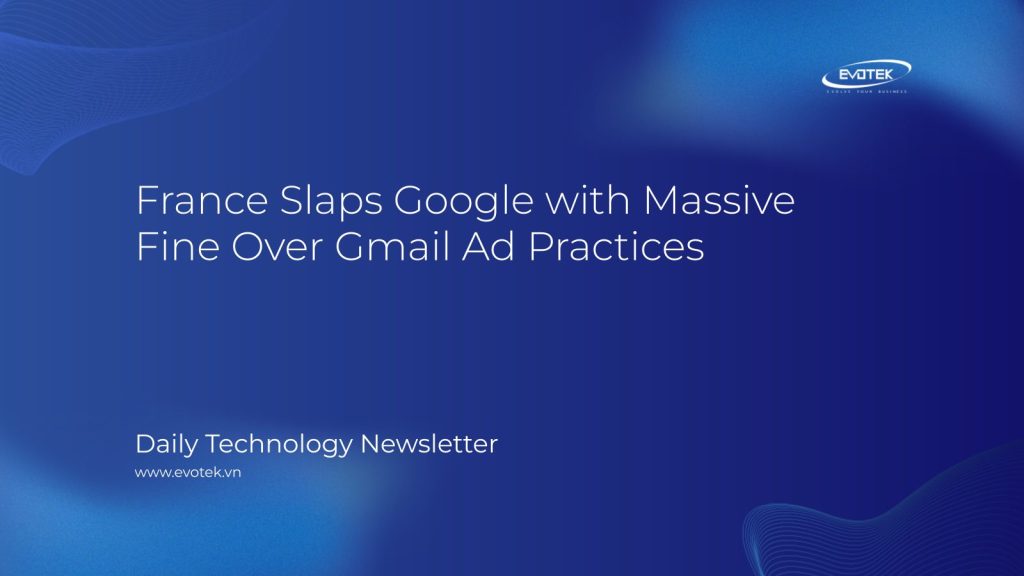Google is facing a record-breaking fine in France, potentially reaching €525 million, due to concerns over its handling of cookies and personalized advertising within Gmail. The French data protection authority, CNIL, alleges that Google’s practices violate French data protection laws, raising serious questions about user privacy.
The Issue: Consent and Personalized Ads
The heart of the matter lies in how Google obtains user consent for cookies used in personalized Gmail ads. CNIL is investigating whether Google adequately seeks permission before downloading these cookies when users set up a Gmail account. Subsequently, these cookies are used to personalize ads displayed within the Gmail inbox.
This practice has sparked debate about whether users are fully aware of the extent to which their data is being used for targeted advertising and whether their consent is truly informed.
Why Gmail Ads Are So Annoying
Imagine sifting through your inbox, only to be constantly interrupted by ads that look deceptively like real emails. This is the reality for many Gmail users. These intrusive ads disrupt communication and hinder productivity. While some users have sought workarounds like ad-blockers, a more fundamental solution is to consider switching to an ad-free email provider.
The Problems with Inbox Ads:
- Distraction and Interruption: Ads divert attention from important emails, impacting workflow.
- Lack of Relevance: Often, targeted ads miss the mark, leading to irrelevant and frustrating experiences.
- Privacy Concerns: Targeted ads rely on scanning emails and personal information, raising serious privacy questions.
Data Collection and User Profiling: How Google Uses Your Information
When you use Gmail, Google analyzes the content of your emails, attachments, and even the links you click. This data, combined with information from other Google services, is used to build a comprehensive user profile. This profile powers targeted advertising, aiming to display ads tailored to your interests.
It’s crucial to understand the extent of this data collection and consider the implications for your privacy.
Privacy Under Threat?
Even if Google promises not to use the content of emails for advertising purposes, many users feel uneasy knowing their communications are being scanned and analyzed. The content of emails can reveal sensitive information, and the constant presence of targeted ads can feel invasive.
Protecting Your Privacy: Alternatives to Gmail
If you’re concerned about privacy, numerous alternatives to Gmail prioritize data protection. Email providers like Tuta Mail offer end-to-end encryption, ensuring that only you and the intended recipient can read your emails.
Switching to a privacy-focused email provider can be a significant step towards regaining control over your data. Consider deleting your Gmail account and choosing an email service that puts your privacy first.
Take control of your digital life and choose privacy!
Latest Posts
- “Sovereign cloud” or “sovereign washing”? A Trojan Horse at Europe’s digital gates.
- Best Private Browsers 2025 | Top Chrome Alternatives
- Journalists need encryption – and the Washington Post hack shows why

 日本語
日本語 한국어
한국어 Tiếng Việt
Tiếng Việt 简体中文
简体中文